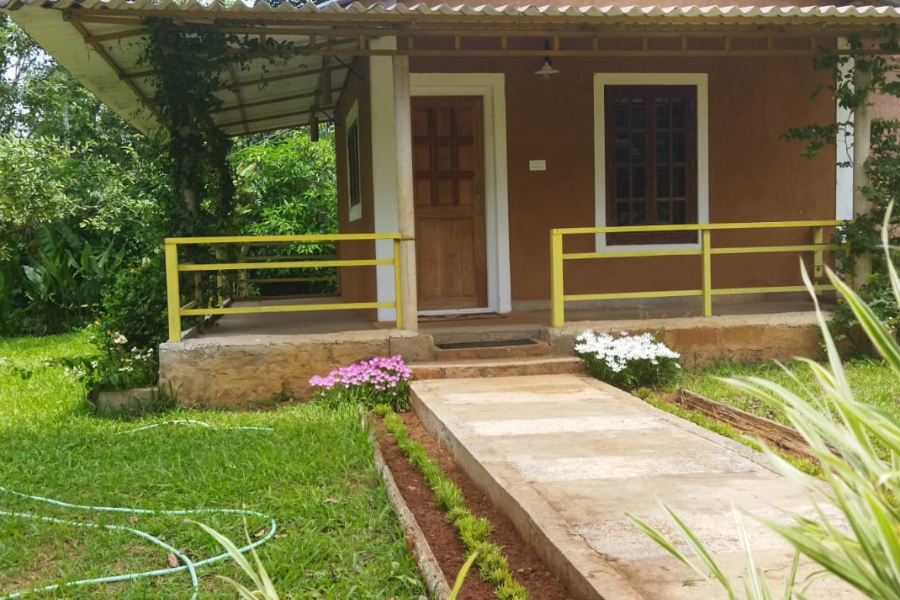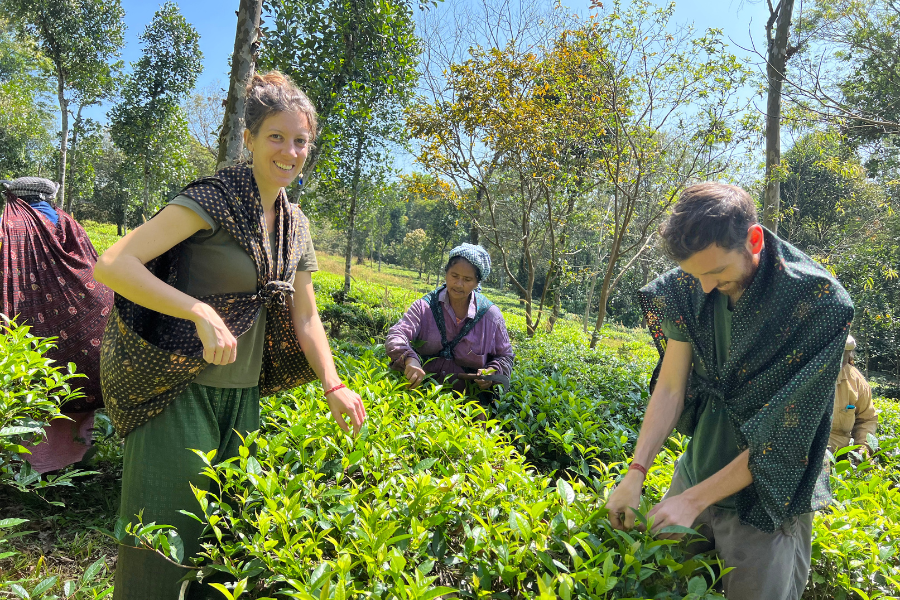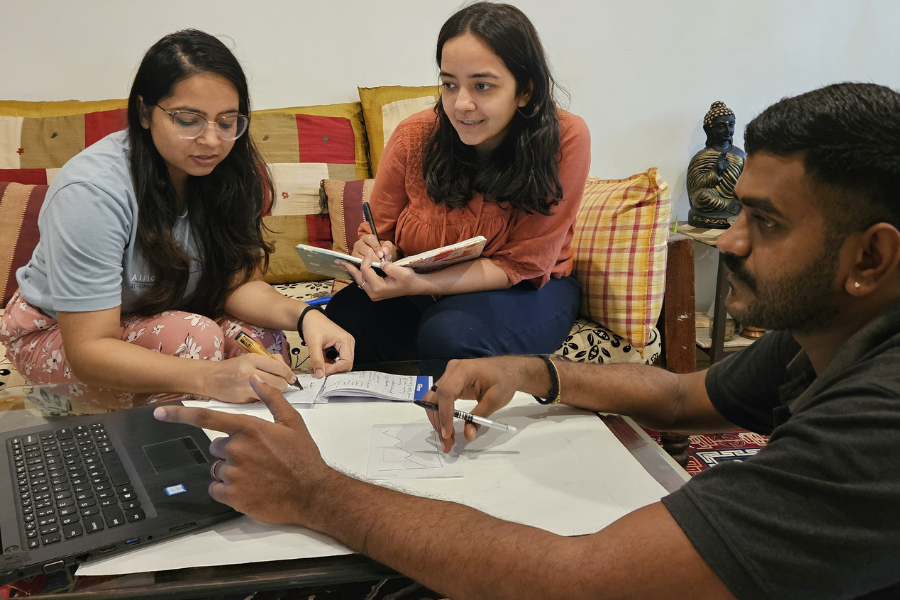

Hosted at the RHM Center in Wayanad, this immersive onsite residency invites postgraduate and PhD scholars to explore the evolving dimensions of sustainability through impact-driven research. Recognising that sustainability is a dynamic field shaped by ecological, social, and economic shifts, the program fosters rigorous inquiry into real-world challenges and regenerative solutions.
Participants are encouraged to initiate their journey by forming a team of undergraduate students under our Bridging the Gap initiative, creating a collaborative ecosystem where mentorship and mutual learning flourish. This residency is designed as a win-win platform: senior researchers gain field support and fresh perspectives, while undergraduates receive hands-on exposure and guidance. Together, they co-create knowledge that matters.
This manifesto is our compass. It guides our collective inquiry into the urgent and beautiful questions of our time.
Each research domain within our Sustainability Research Residency is more than a subject, it is a doorway into deeper transformation. We invite scholars to explore, innovate, and co-create within these evolving arenas, where sustainability is not just studied but actively shaped.
Our core focus is to help you translate your academic knowledge into tangible, regenerative outcomes—including the potential to build passive income streams while still pursuing your studies. This principle of self-reliance is central to the program and stands as one of its most empowering takeaways.
Course fees vary depending on the nature and scope of your chosen project. Each initiative may require the engagement of local collaborators, creative professionals, or specialized tools to ensure successful implementation. These elements are woven into the project design, and we encourage researchers to plan holistically, balancing academic rigor with practical execution.

TGG Foundation has restored a 30 year old mud house using freshly made mudbricks and mud plaster with other modern fittings to create awareness among people on how cost effective, sustainable and simple a house can be. Only the bathroom area has been built using light weighted bricks. The Foundation offers minimalist living experience to responsible humans at this Earth Home which is located at the RHM Center. Taking the inspiration from this creation, the foundation is conducting an advance research to create an energy efficient, air ventilated, well equipped, Low cost, all weather tiny home with a minimum life span of 30 year.

The TGG Foundation has undertaken research on energy-efficient A-frame tiny homes, aligning with its mission to promote sustainable living. The study focuses on leveraging the A-frame design for its structural simplicity and thermal efficiency. Emphasizing renewable resources and passive design principles, the research explores optimal insulation, ventilation, and solar energy utilization to reduce energy consumption. The compact nature of the tiny home ensures efficient land use and minimizes environmental impact.

TGG Foundation has focused on building a model initiative since to train youths on Responsible Tourism and its role in developing a responsible society that cares for the environment, respects culture, contributes to sustainable development, and empowers rural communities since 2014. Ms. Allison Platt, in conjunction with TGG Foundation and Tufts University, United States, undertook a need-based assessment research in 2016. TGG Farm was created for practical experience and currently provides sustainable living practice and experience.

Financial literacy is a crucial skill that empowers adults to achieve economic independence and embrace the flexibility of a minimalistic lifestyle and digital nomadism. Understanding and managing personal finances is the foundation for a stable and successful life, especially for those who aim to build a lifestyle that enables them to work and travel anywhere.

TGG Foundation encourages students to engage in intensive research on developing social startups and enterprises to accomplish its sustainable rural development goals. Social startups drive innovative solutions to pressing social issues, creating sustainable and scalable impact. They bridge gaps among communities, fostering inclusive growth and development. Participants will conduct research, complete assignments, and submit a comprehensive project report and present it by the end of the program. The mission is to promote sustainable rural development and create lasting impact through research and innovation. Join us in our mission to drive sustainable change and contribute to social transformation for rural prosperity.

AyurGayanam is a structured research initiative that invites botany students to explore the healing intelligence of medicinal plants through a multidisciplinary lens. Rooted in the ancient science of Ayurveda, the project emphasizes the balance of doshas (Vata, Pitta, and Kapha), as a foundation for holistic well-being. Students will engage in ethnobotanical documentation, phytochemical analysis, and therapeutic profiling of indigenous flora, uncovering their role in preventive and curative health. Integrating yoga, meditation, and naturopathic nutrition, AyurGayanam also examines how plant-based therapies support physical vitality and emotional harmony. The initiative recognizes prana, or vital life energy, as central to healing, and incorporates energy-based modalities such as Reiki and Ayurvedic Marma Therapy to study the energetic activation of plant remedies. Through fieldwork, experiential learning, and collaborative inquiry, AyurGayanam empowers young researchers to blend traditional knowledge with scientific rigor, fostering ecological stewardship, conscious health practices, and a deeper connection to nature. This is not just a research project; it is a journey of self-discovery and a call to reimagine healing as a harmonious dialogue between science, spirit, and sustainability.

This research initiative is a call to reawaken ethical consciousness across all levels of human existence, from schools to governance, from individual choices to institutional frameworks. It seeks not to confront but to invite offering every stakeholder a chance to become a responsible human being.
By setting systems right, nurturing value-based education, and fostering citizen-friendly administration, the project aims to eliminate the scope for corruption through clarity, transparency, and collective responsibility. The research will be carried out by individuals who voluntarily commit to this cause, driven by conscience rather than compensation. A voluntary, non-funded, participatory research rooted in ethical awakening and systemic transformation.
TGG Foundation has been engaged in the maintenance of Tea garden since 2014. It has gone through the organic certification process and have developed ethical standards on maintenance and processing. Tea production is one of the most labour intensive plantation activity due to its daily plucking of tea leaves. Small farmers, having a tea garden suffer due to high labour cost and low price for fresh tea leaves due to their dependency on traders who are the middleman between farmers and the factory. Since there is no minimum support price fixed for tea leaves, farmers are often paid an annual average rate of Rs.12 to 14 per kg. Where in the cost of managing and harvesting the garden can go upto Rs.18-20 per kg. This has resulted in farmers changing the cultivation from tea to coffee or other perennial crops which doesn’t require daily workforce to maintain. At this situation, maintaining the garden organically is next to impossible and it can be done only by those who have the conviction. This has been the inspiration for TGG Foundation to start a research on how to process tea using traditional knowledge and innovative ideas that can benefit small farmers. Presently the foundation produces hand crafted white tea, green tea and orthodox tea using in house techniques . In the financial year 2022-23 the foundation will be researching on improving drying method for better shelf life, produce black tea using indigenous method using cut, tear and curl (CTC) process without using heavy machines, developing value added products from tea.



In order to develop various projects of TGG Foundation there is a need to research and innovate. Using the available resources and infrastructure the Foundation has designed and developed a low cost technique to make hand crafted green and white tea. This year the Foundation will focus on developing creative center for people with design thinking skills where more equipment for tea processing, tools to ease various agriculture activities, simple mechanisms to process black tea and a miniature model of the low cost tiny home will be developed. The innovation center will also focus on developing cost effective hand operated labeling tools, packing boxes, printing blocks, etc. that can help small farmers to process their produces and sell directly to the consumers to make their agriculture activities sustainable.

Steam Pan

Tea leaf drying system

Essential oil Extractor
We do not seek passive observers. We welcome active co-creators—those who walk with humility, curiosity, and courage. Researchers will live, learn, and contribute within our ecosystem, engaging with youth, farmers, artisans, and changemakers.
This manifesto is not a static document—it is a living promise. A promise to walk together, think deeply, and act wisely. Through this research program, we aim to seed a movement where inquiry becomes impact, and knowledge becomes kinship. Let us begin.